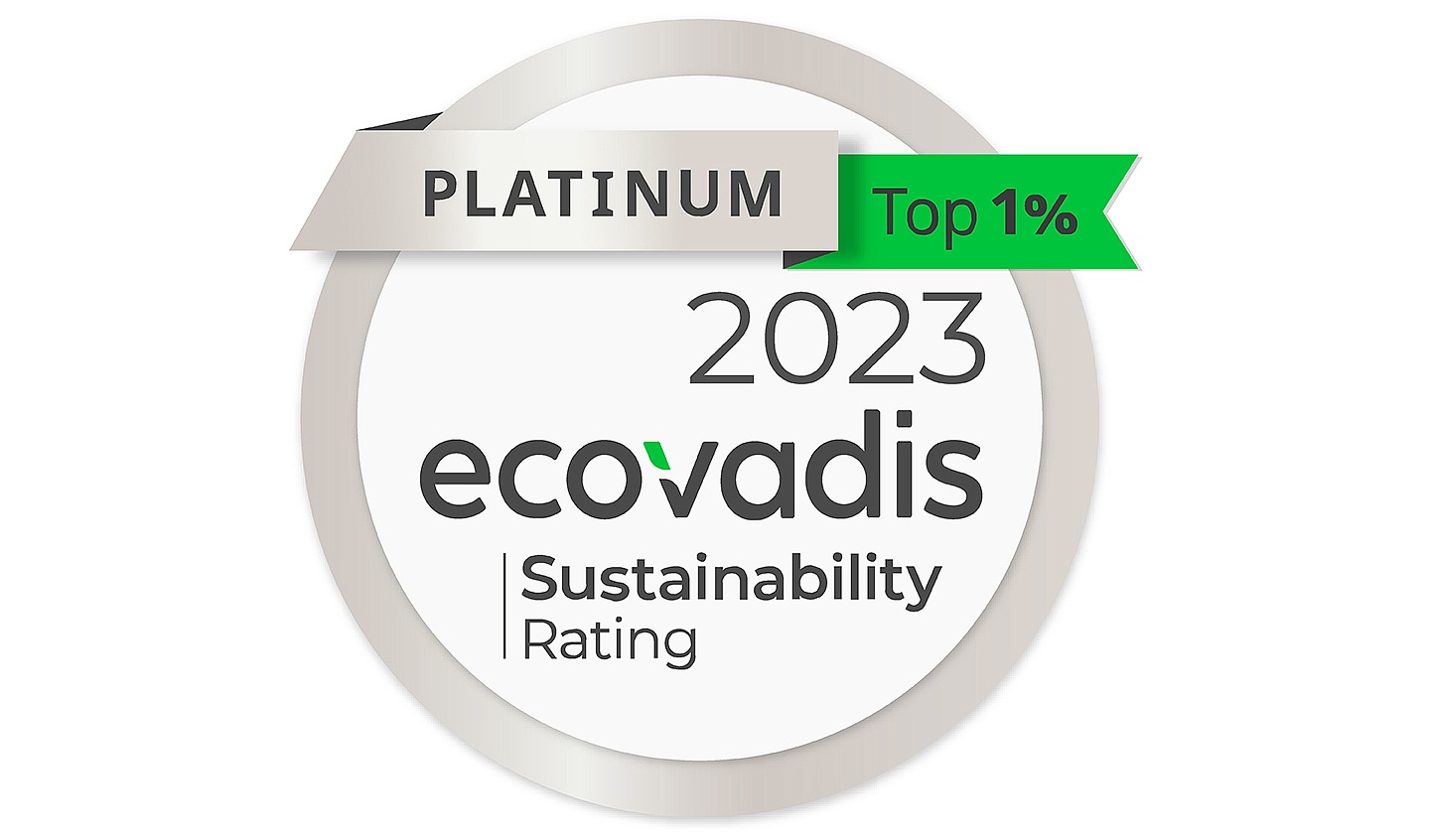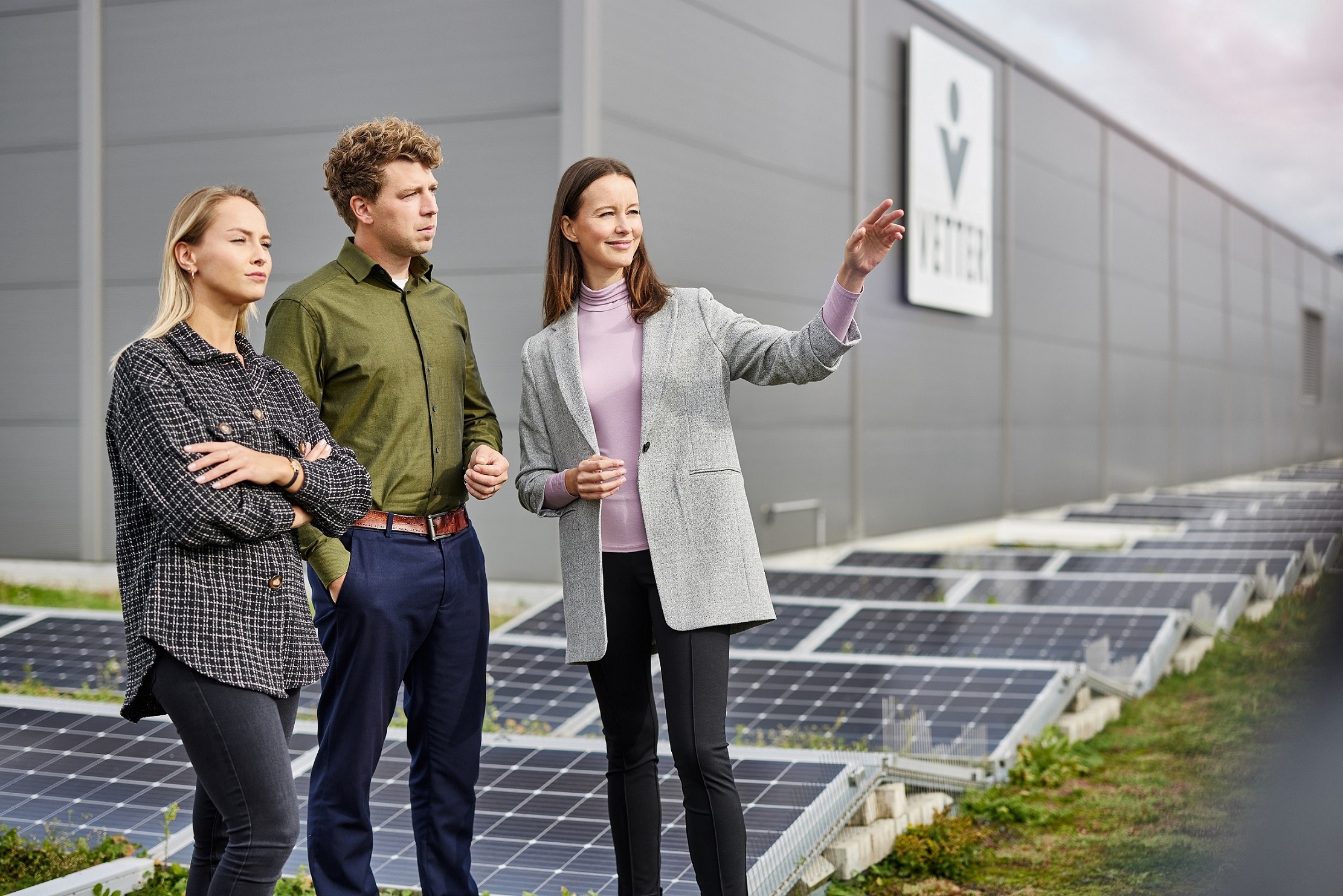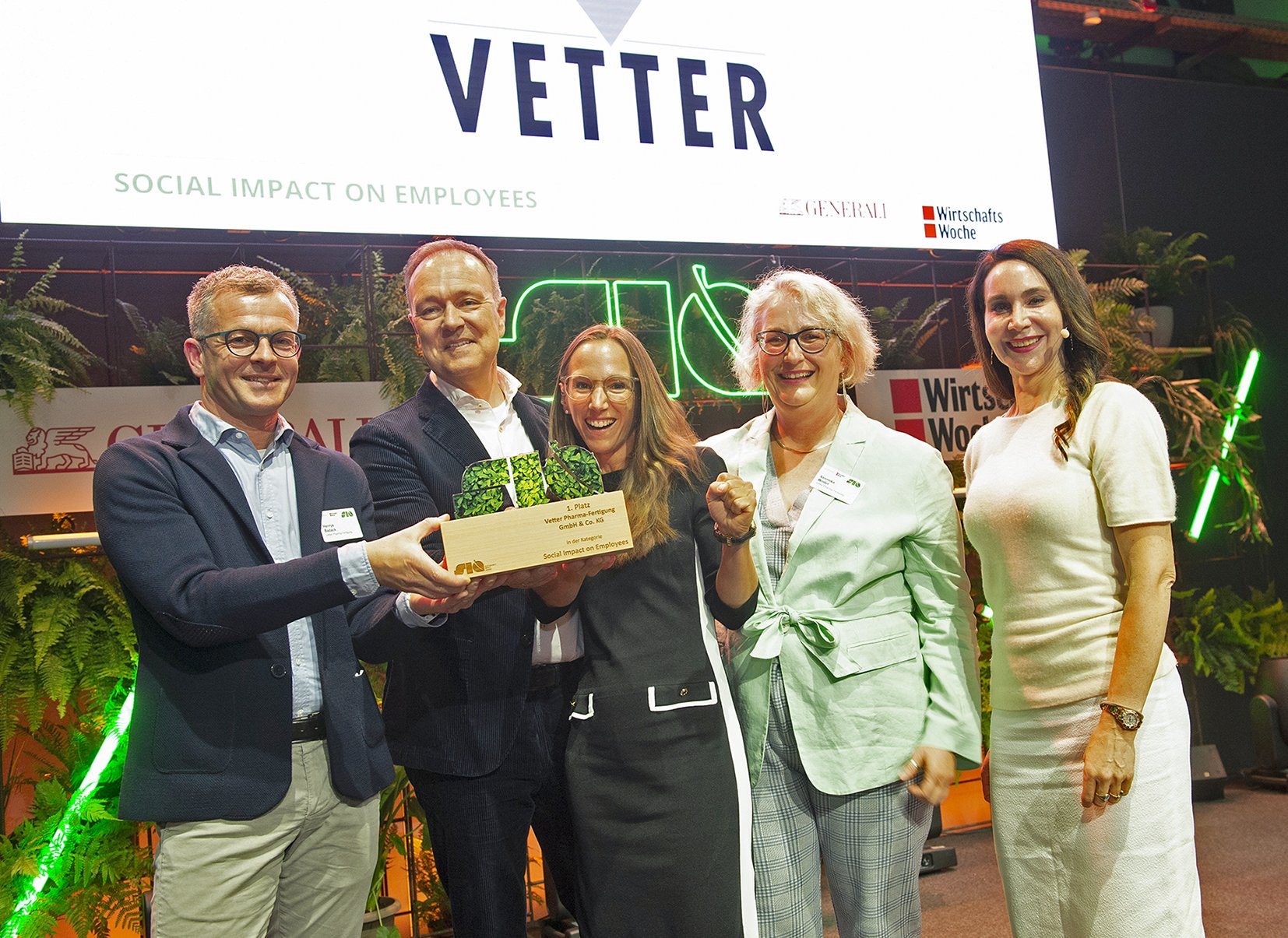
We have joined the Science Based Targets Initiative (SBTi) membership group as of November 2023. The goal of the companies in the SBTi is to achieve climate neutrality by 2050, thus representing the strictest climate protection targets for companies worldwide. As a result, we have committed to the 1.5 degrees of global warming target.
To this end, we have presented a sustainability strategy with concrete steps to take through 2030, in which the effects of the planned dynamic growth related to CO2 emissions are already factored in. With the commissioning of the new photovoltaic plant and the conversion of another existing combined heat and power plant to biogas, both at its Ravensburg Center for Visual Inspection and Logistics, we are already taking important steps towards Net Zero in 2023.
According to Henryk Badack, Senior Vice President Technical Service and Internal Project Management, being responsible for our global sustainability activities, "Many measures that other companies are only now implementing, such as 100 percent green electricity, are already part of our daily routine.
We invest continuously to make energy-intensive production processes more efficient and to gradually switch to climate-friendly forms of energy. Joining the SBTi is therefore the logical next step for us: we are making it even more transparent for our customers and partners that we want to achieve Net Zero and how we intend to do it.”
By joining the SBTi, we are not only committing ourself to ambitious climate targets. It is taking the added step of implementing uniform monitoring and reporting standards for CO2-relevant processes according to the specifications of the international Green House Gas (GHG) Protocol. In our current sustainability report, we have already recorded part of our Scope 3 emissions and reported the CO2 balance according to the GHG protocol.
Henryk Badack added, "By joining SBTi, we commit ourselves to annual reporting and their validation. In this way, we make our measures to reduce our carbon footprint even more transparent and traceable while contributing to fully sustainable supply chains."
Investing in climate-friendly energy generation
Pharmaceutical production is energy-intensive, and the conversion to renewable energies is correspondingly complex. We have been investing in the development and expansion of the local infrastructure for sustainable energy generation over the past several years. In 2023, we invested approximately one million euros in the installation of a large photovoltaic (PV) system on the roofs of our state-of-the-art warehouse in Ravensburg, as well as a six-figure euro investment in the conversion of a natural gas heat and power plant. Since then, only biogas has been used.
The PV plant will generate around 700,000 kWh of renewable energy per year. This corresponds to about 10 percent of the energy consumption at the site. This results in a reduction of about 330 tons of CO2 per year, while the conversion to biogas will save about 1,000 tons of CO2 per year.

ecovadis Platinum Status
We are a leader among CDMOs in the field of sustainability. In the globally recognized ecovadis ranking, we recently received Platinum status and are thus among the top one percent of the most sustainable companies. Among the decisive factors for the improvement from Gold to Platinum status were our further developed initiatives for sustainable supply chains – spanning from measures for supplier assessment to risk analyses in the area of environment and human rights.
Our role as an active member of the UN Global Compact (UNGC) as well as our continuous sustainability reporting also paid off in receiving the excellent rating.
Steadfast Commitment
Recently, we were once again awarded the Top Climate Commitment 2024 seal by FOCUS Magazine, which puts us on the recommendation list for companies that are particularly ambitious in their commitment to the climate. In November, we also received the Environmental Management Award 2023 in the category "Best Strategy for Sustainable Corporate Development".
This prize is awarded by the German Federal Ministry for the Environment, Nature Conservation, Nuclear Safety and Consumer Protection. We convinced the jury with our integrated management system, which forms a sound basis for holistic sustainability management and encompasses both the ecological and economic as well as the social pillars in the company.
About SBTi
The Science Based Targets Initiative (SBTi) is a global organization that enables companies to set ambitious climate targets. These are based on the current results of climate research. The initiative focuses on putting companies worldwide on track to halve their emissions by 2030 and become climate neutral by 2050. SBTi is a joint initiative of the Carbon Disclosure Project (CDP), the United Nations Global Compact, the World Resources Institute (WRI) and the Worldwide Fund for Nature (WWF).
You can download our current sustainability report here.


